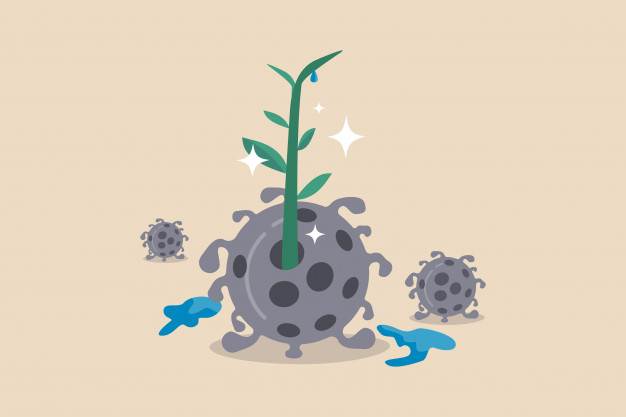
12-Jul-2021 , Updated on 7/12/2021 4:50:10 AM
The road ahead Covid-19 Pandemic: Post-pandemic recovery
The coronavirus pandemic has shook the world in the late 2019 with an unexpected shock, jolting down the very possibility of life. It changed the way our lives function and made us adopt new lifestyles worldwide.
Suppose, working professionals were pursuing a 9 to 5 job; now they have to do the same online, which rose a new phrase 'work from home, earn from home'. The same happened to schools worldwide. Some countries cancelled the entire session and promoted their students, while others still went for 'online classes.' It also changed the way how markets worked earlier, and created new opportunities in healthcare as well.

Ever since the pandemic has struck the globe, 90% of the cases have come from urban areas, though only half of the world population lives in the urban areas. Reason? Population density being a key factor in the spread of the disease and it is seen mostly in the cities.
The research and development work is being carried out in cities only for the social and economic effects of COVID-19. Thus, there is going to be a great demand for both recentralization and decentralization, and clash between the two.
Recentralization or concentration of power, to deal with the emergency situation
Decentralization or division of power for managing the social and economic problems.
Also, there is going to be more and more competition between countries for individual growth and network exchange platform, which country could come up with most innovative solutions to reach post-pandemic recovery. This competition is going to result in disputes between countries to access more and more funds for coming up more quickly with post-pandemic recovery.
There is a need of governments to come in solidarity and mutual developmental strategy for 2021. Only when there are new and innovative solutions, the urban areas will develop more and more. This will depend on city governments’ ability to foster lasting policy co-production relationships with communities and social groups.
Alongside of these challenges there are also some risks which have emerged to be a part of the pandemic: like growing social unrest, increasing inequalities, etc. Due to the prolonged impact of pandemic, there would be clash of interests and expression of unrest more rapidly. Demands such as better housing facilities, improved economic as well as health conditions are going to cause discontentment and may lead to controversial incidents in many parts of the world.
Since the world has already moved towards digitalization; there is also an expected probability of clash among the tech-giants and corporates, like the recent Chinese company Zoom was accepted worldwide for online meetings, and the rest of its competitors had to face a rivalry in the online market.
Even if the pandemic gets controlled somehow, there would be an urgent need to bridge the gap among social, economic and health related issues. Their recovery is going to take a lot of time post pandemic recovery.
Even if we try to shift the rural population to the urban side, we would experience a lot of challenges as the health sector would require more development to foster to the citizens. Also, the socio-economic growth would be restrained because of population density, homelessness, violence, inability to adjust are some examples. One unpredictable thing is the risk of some new disease among population.
Thus, some useful steps could be:


Student
I am a content writter !
Join Our Newsletter
Subscribe to our newsletter to receive emails about new views posts, releases and updates.
Copyright 2010 - 2026 MindStick Software Pvt. Ltd. All Rights Reserved Privacy Policy | Terms & Conditions | Cookie Policy